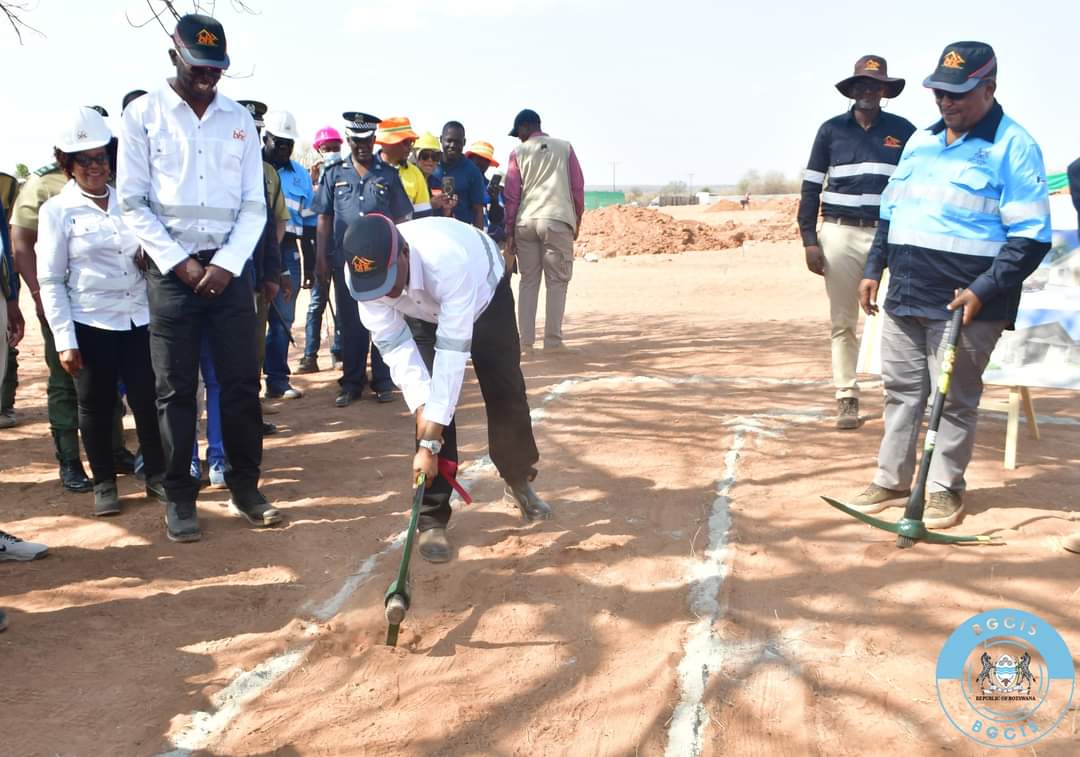The Botswana Housing Corporation (BHC) recently made significant strides in the realm of housing development by marking the groundbreaking of the BHC Pilane 200 Housing Project in Pilane Village. This initiative is not only a response to the increasing demand for housing in Botswana but also a strategic move to promote the commercialization of land, which is essential for the country’s economic growth.
Keynote Address by His Excellency Dr. Mokgweetsi Eric Keabetswe Masisi
During the groundbreaking ceremony, His Excellency Dr. Mokgweetsi Eric Keabetswe Masisi delivered an inspiring keynote address that resonated deeply with the audience. He urged Batswana to recognize the immense potential of their land and to maintain ownership rather than selling it off. Dr. Masisi’s message was clear: land is a valuable asset that can be developed for commercial purposes, and this development is crucial for the individual prosperity of citizens and the collective economic advancement of the nation.
The Importance of Land Ownership
Land ownership in Botswana has traditionally been viewed through a residential lens, often leading to a passive approach to its economic potential. However, as the population grows and urbanization increases, the need for a proactive stance on land utilization becomes increasingly urgent. Dr. Masisi’s call to action emphasizes that land can be transformed into a resource that not only enriches individuals but also contributes to national wealth. By investing in land development, citizens can create opportunities that lead to job creation, increased revenue, and enhanced infrastructure.
Exploring Commercial Opportunities
The BHC Pilane 200 Housing Project serves as a prime example of how land can be commercialized effectively. By developing housing projects, the BHC is not only addressing the housing deficit but also stimulating economic activity in the region. The project is expected to attract various stakeholders, including contractors, suppliers, and service providers, thereby fostering a vibrant local economy.
Moreover, the government can facilitate this process by implementing supportive policies that encourage investment in land development. This includes providing access to financing, offering incentives for sustainable practices, and streamlining regulatory processes. Such initiatives can empower citizens to embark on entrepreneurial ventures that maximize the value of their land.
Building a Sustainable Future
The commercialization of land is not just about immediate economic gains; it also aligns with Botswana’s long-term development goals. By harnessing the potential of land, the nation can work towards achieving sustainable development, ensuring that future generations inherit not just land but thriving communities and economic opportunities.
Dr. Masisi’s vision for land commercialization is a clarion call for all Batswana to take ownership of their economic destinies. By leveraging their land as a resource, they can contribute to a stronger, more resilient economy that benefits everyone.
The groundbreaking of the BHC Pilane 200 Housing Project marks a pivotal moment in Botswana’s journey toward economic growth through land commercialization. With strong leadership and a commitment to innovation, Batswana can transform their land into a cornerstone of prosperity. As citizens heed the call to explore commercial opportunities, they can forge a brighter future for themselves and their country, ultimately turning land into a powerful catalyst for economic development.










